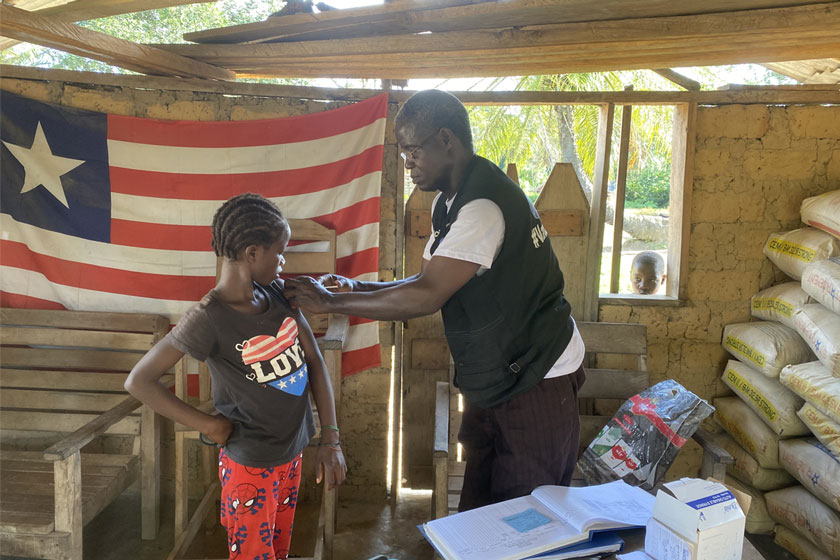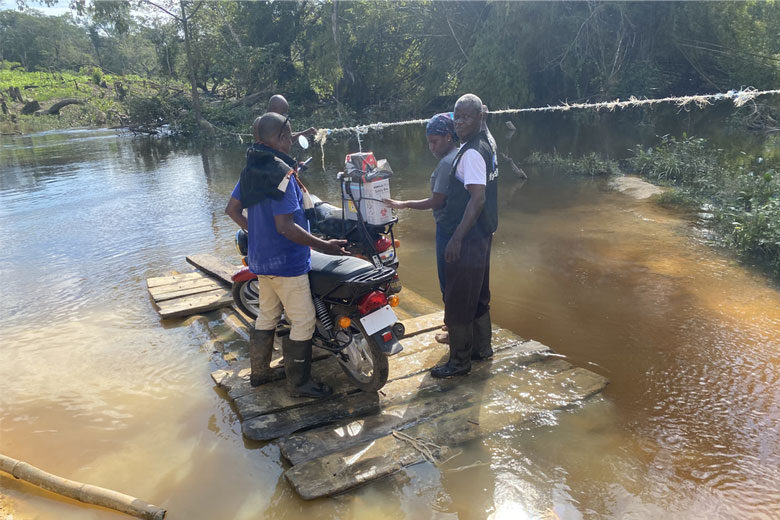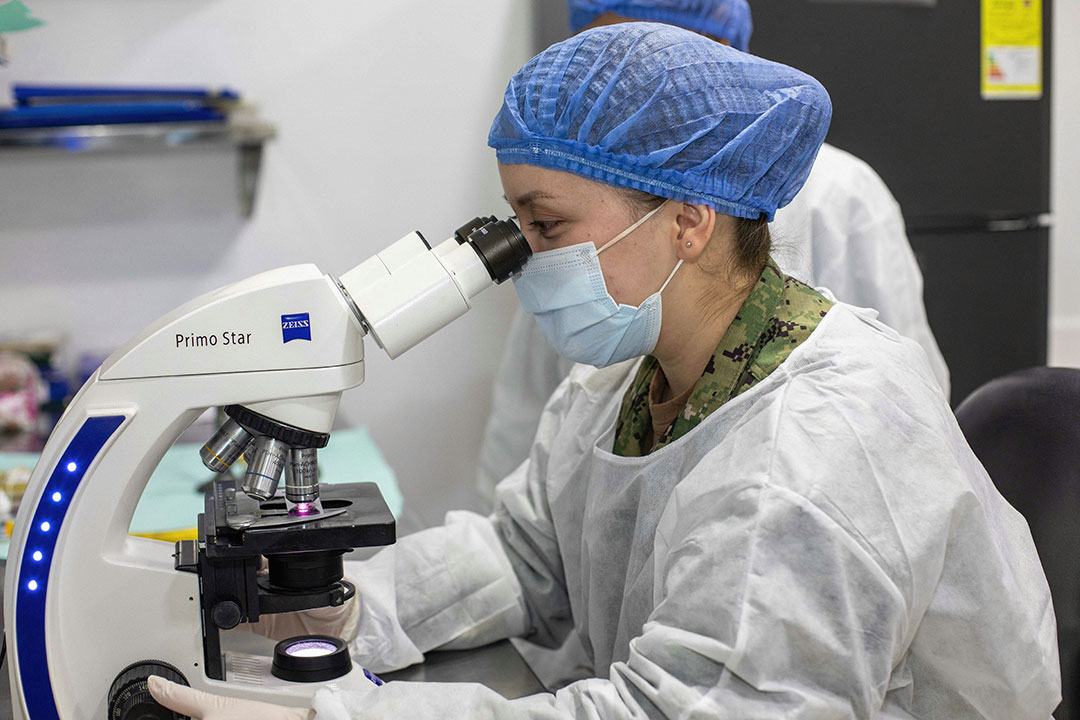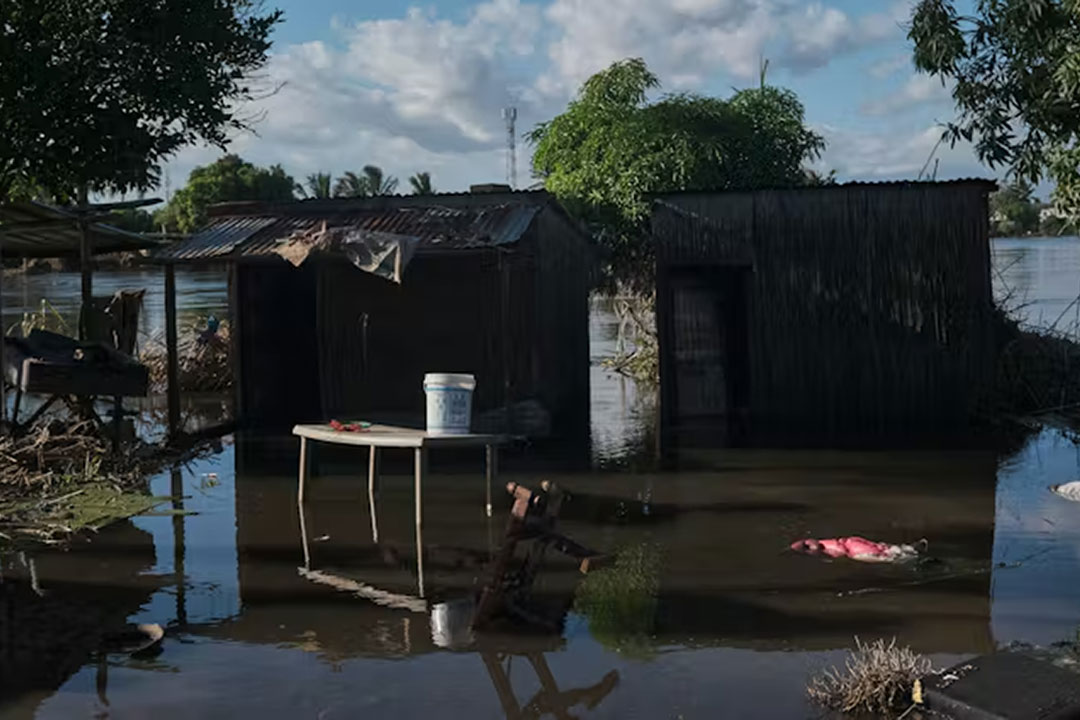Communities in rural Liberia welcome malaria vaccine roll-out
Administering the four-dose vaccine series is not without challenges, but health leaders say parents are turning out in force.
- 28 November 2024
- 5 min read
- by Tina S. Mehnpaine
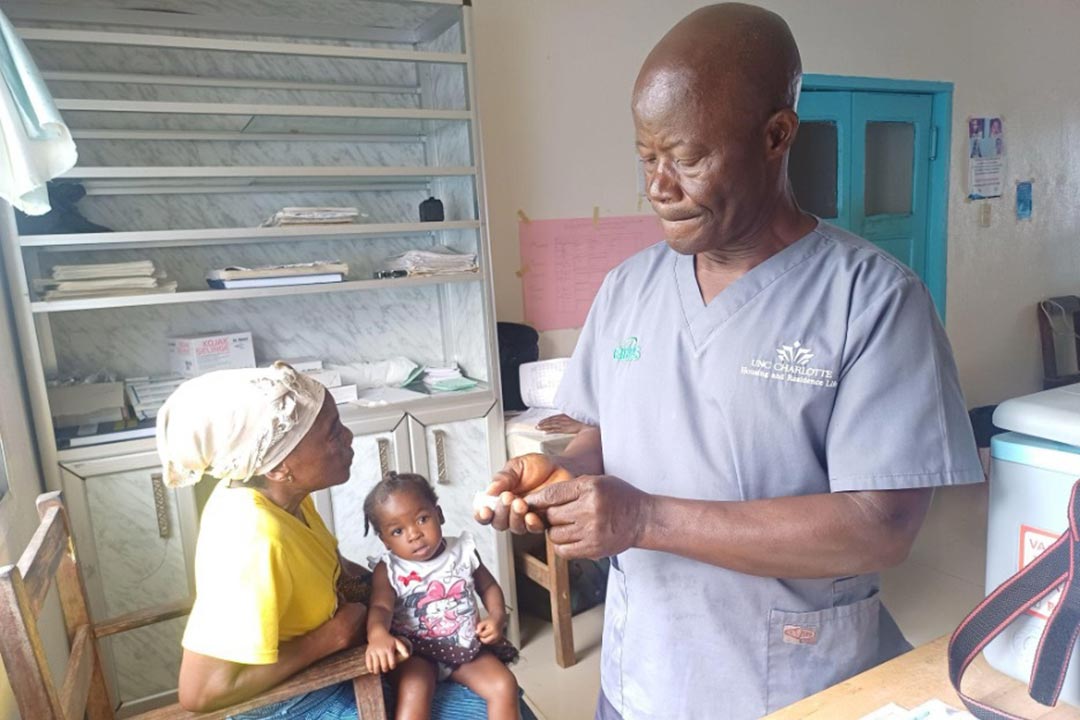
Mery Onumah's son was four months old when she heard an announcement on the radio urging guardians to take their children to the nearest health centre for a malaria vaccine.
Having suffered from malaria herself, Onumah was determined to protect her child. When her son turned five months old – the age of eligibility for the first of the four recommended vaccine doses – she rushed him to St Francis Hospital in Cesto, Rivercess.
"If you look at the past, malaria in Rivercess County has been on the increase for the younger ones, the pregnant women, and the older ones. But the vaccine is helping to reduce this."
– Deborah Johnson, the Ministry of Health Malaria Focus Person in Cesto, Rivercess county.
"I know how malaria can treat people, and I don't want my child to suffer, so I brought him to get the vaccine," she said.
New offensive
Before April this year, when the novel malaria vaccine was introduced in Liberia, Onumah and her fellow community dwellers in her small town, Downtown Cesto, Rivercess, relied on conventional medications and traditional herbs to treat their kids when they fell ill.
Liberia's malaria prevalence rate in children under five hovers at a hefty ten percent. More than 3,500 people died from the parasitic infection reported countrywide by 2021 alone.
But now, a new tool against the ancient disease has been put into play, and Onumah's son numbers among a first cohort of 45,000 children being immunised in Grand Gedeh, Grand Kru, Maryland, Rivercess, River Gee and Sinoe counties – parts of the country that recorded especially high malaria case-loads in the 2022 Liberia Malaria Indicator Survey.
Launched in Cestos City at the St Francis Government Hospital, the jab is now officially part of the country's routine childhood immunisation programme.
"Rivercess was chosen because it bears a high burden of malaria cases," underscored Dr Yuah Nemah, Acting Program Director, of the Essential Programme on Immunization (EPI), adding that in trials and in contexts where it has been rolling out for longer, the vaccine was shown capable of reducing clinical malaria by 39% and severe malaria by 29%.
Malaria disproportionately burdens sub-Saharan Africa, which saw an estimated 249 million cases of malaria and 608,000 deaths in 2022, according to WHO. But the first anti-parasitic human vaccines the world has put to use, the RTS,S and R21 vaccines, are already proving their value, with mass uptake promising massive impact. Experts say that the ongoing, widespread roll-out of the worst-affected parts of the world will save tens of thousands of children annually.
The vaccine primes the child's immune system against the parasitic invader, reducing mortality and substantially reducing hospitalisation for severe malaria. It's administered in four doses to children at around ages 5, 6, 7 months, with the final shot in the series given at 15 months. Together with the Liberian Ministry of Health, Gavi, UNICEF and WHO are mobilising the unprecedented roll-out.
Parents make the effort
In downtown Cesto City, Onumah's journey to the nearest health facility is not an easy one. The rain has hammered the already degraded roads, and like many other mothers here, she cannot afford transport fare for a motorbike.
Theresa Mkpanwone said that her grandchild nearly missed out on the second dose of the vaccine – due on 5 September – because the rain all but washed the roads out. Luckily, the weather stabilised, and she brought the child to the centre five days later. "Sometimes it can't be easy, no," she said.
Have you read?
Not easy, but for many families the journey is clearly worth the extra effort. With community mobilisation and awareness-raising messaging going out in local languages over the radio airwaves, mums are turning out in force."From the introduction of this vaccine, mothers are turning in with their children," said Deborah Johnson, the Ministry of Health Malaria Focus Person in Cesto, Rivercess county.
"If you look at the past, malaria in Rivercess County has been on the increase for the younger ones, the pregnant women, and the older ones," she said. "But the vaccine is helping to reduce this."
Challenges
Johnson adds that keeping on schedule for the four-dose series is a challenge. Some women are walking three or four hours, carrying their babies, to reach the facility.
It's not the only challenge to the roll-out of the RTS,S malaria vaccine in Liberia that experts acknowledge. Limited knowledge of the vaccine and citizens' trust are other hurdles the Ministry has been working to overcome.
Moreover, the vaccine is not kept permanently in most public facilities, due to storage concerns. Mothers must come to the facility on a specific schedule to get their kids vaccinated, which can be difficult to meet for a population dominated by small-scale farmers, with their own rhythms of life. The illiteracy rate among the populace, meanwhile, hampers the speed of communication.
Undeterred, Johnson says her team are engaging in "every means" to ensure that the vaccine reaches all children in the county.
For instance, faced with the challenge of seeing children all the way through to dose four, the team is deploying a digital tracking tool. "Our vaccination team has their tracking tool, so if you came at five months and we know you should come at six months, the tracking tool will remind us that mother X should have been here, so the tracking tool reminds us that in community X, the outreach team will reach the mother at their location," she explains.
"Our challenges have been moving the field; looking at the road condition, it's not easy if you are getting to these facilities that are a little distance," she added.
Forging ahead
But despite all these difficulties, community health workers (CHWs) are doing their bit to ensure kids get the doses they are due – even when they miss out on originally scheduled dates.
CHWs are the keystone of the immunisation effort, health leaders say, engaging local leaders, including traditional leaders and influencers, and using their dialects to translate messaging around the importance of the vaccine. They go door to door, hold community discussions in local languages to address concerns, dispel myths and mete out accurate information.
Liberia-born charity Last Mile Health is also assisting the immunisation process by engaging community dwellers through the National Community Health Program. Community health workers are deployed to ensure that adequate awareness of the vaccine is provided.
More from Tina S. Mehnpaine
Recommended for you

